Savvy Spotlight: Tamao Sako Of The British Pudding
A Look Into The Achievements Of Japan's Julia Child
One woman's road to changing Japan’s image of British cuisine, one cake at a time.
Cook, teacher and author, Tamao Sako began her journey into entrepreneurship quite by chance. Enamored with the UK’s sweets — and later savory dishes, too — thanks to 10 years spent in England, she returned to Japan with a passion to share the delights of cream teas, sticky puddings and fruit pies.
Since setting up her cookery school The British Pudding in Osaka in 2013, she has written five books, held cooking classes at Nihonbashi Mitsukoshi and Isetan Shinjuku, and led demonstrations and tastings across the country. As an adviser of Hankyu’s British Fair, which is held in the department store every fall, Sako travels regularly to the UK, where she searches far and wide to find the best local, traditionally-made products and the stories behind the people who make them.
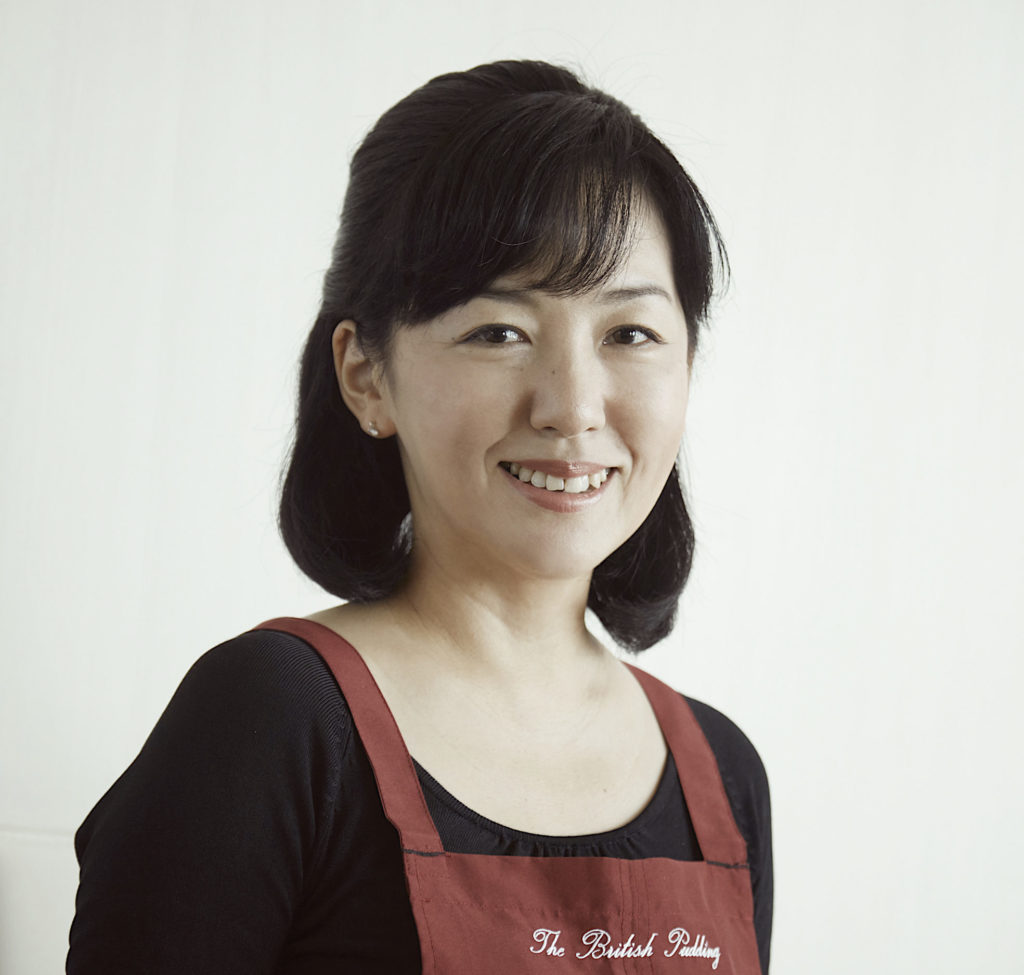
Tamao Sako
Sako was also an advisor on NHK morning drama Massan, which aired from September 2014 to March 2015. Based on the real story of Masataka Taketsuru who studied in Scotland in 1918 and returned to Japan with his Scottish wife to set up a whiskey distillery, the popular program brought challenges as the Scottish food on set had to look authentic. From lamb stew to Christmas pudding, Sako worked with the crew to ensure that what they filmed was not only in keeping with Scottish dishes from that time, but that the actors enjoyed what they ate on camera.
In 2016, Sako’s activities stepped up a gear with her nomination to receive two prestigious awards. In May, she was awarded first prize for her book British Home Cooking and third prize for her book British Cake Stories at the Gourmand World Cookbook Awards. In November, she received the Entrepreneur of the Year award from the British Chamber of Commerce in Japan at the British Business Awards, held in Tokyo.
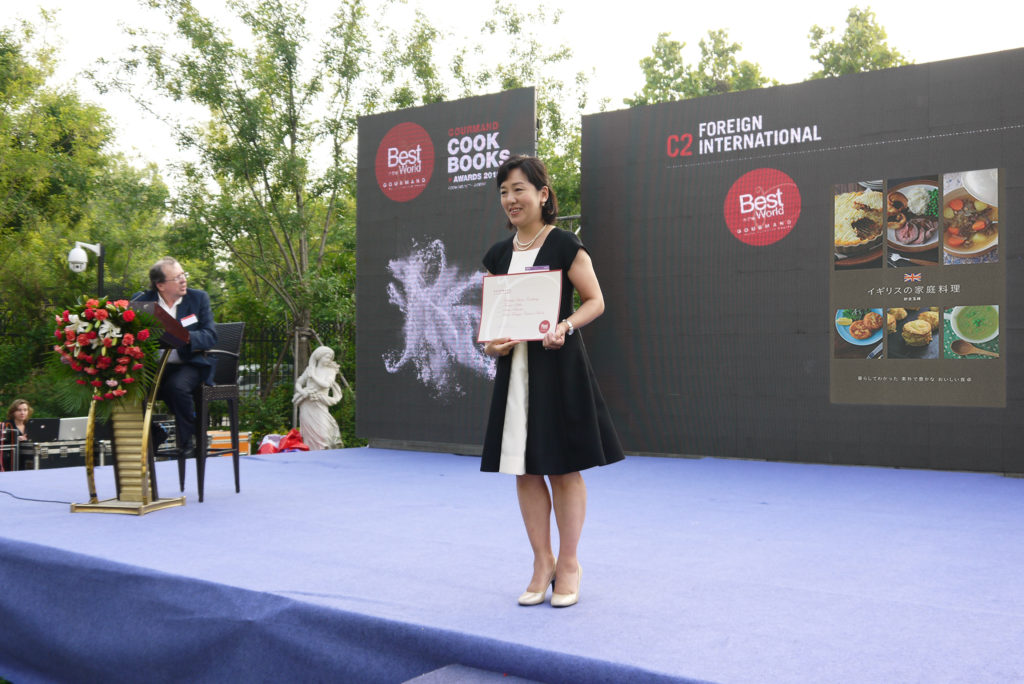
Tamao Sako receives her Gourmand World Cookbook Award in 2016.
After the highs of 2016, Savvy Tokyo asked Sako to reflect on her achievements and share her plans for the future.
Congratulations! How was your experience at the Gourmand World Cookbook Awards?
The award ceremony was held in Shandong Province, China, and it was my first time to visit there, so I was really excited. There were so many people representing different countries. In my category, “Foreign Cookbook”, there were 14 people so I was really surprised to win the Grand Prix prize. When I came back to Japan, a British Embassy Tokyo representative called me to say congratulations. It was the first time a cookbook on British cuisine had received that award in the foreign cuisine category so they were delighted that I helped put British cuisine on the world stage. And I was so moved to receive the phone call!
And what were your impressions from the British Business Awards?
I couldn’t believe the number of people with UK-Japan connections attending the event. In Tokyo, there are so many more links with the UK than there are in Osaka. I felt that the British and Japanese people at the BBA were all cheering me on and believe in my work. I couldn’t believe I won.
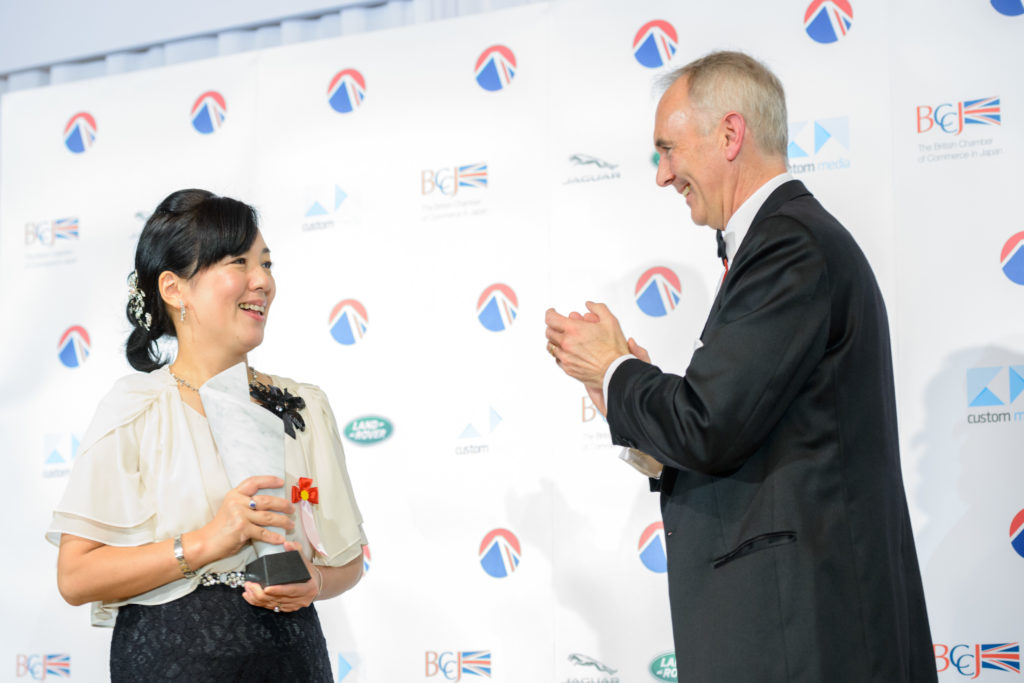
Sako winning her second award for the year, the British Business Award.
How did you get into British sweets?
I had moved to Reading, in England, for my husband’s job and was invited to tea time by my new neighbors. I was given a mince pie as it was the start of the Christmas season and it was delicious. That was the starting point; I found that I wanted to learn the history of British cakes and make as many as I could. Over the years, I learnt so much from that elderly couple and brought my knowledge back to Japan, to share my love of British sweets with others.
[…] I was given a mince pie as it was the start of the Christmas season and it was delicious. That was the starting point.
What was the appeal?
Each British cake has a history and a story. And there are so many, in such variety, from tray bakes and biscuits to puddings and pies. There are also lots of regional sweets, some of which can only be found in certain parts of the UK. I also love that the traditional tools to make the sweets—such as griddle stones, pie birds and pudding basins—are still being produced and used in the UK. If you go to a kitchen in the UK, you will likely still see them and I like that. In Japan, when new things are invented, the old things are forgotten.
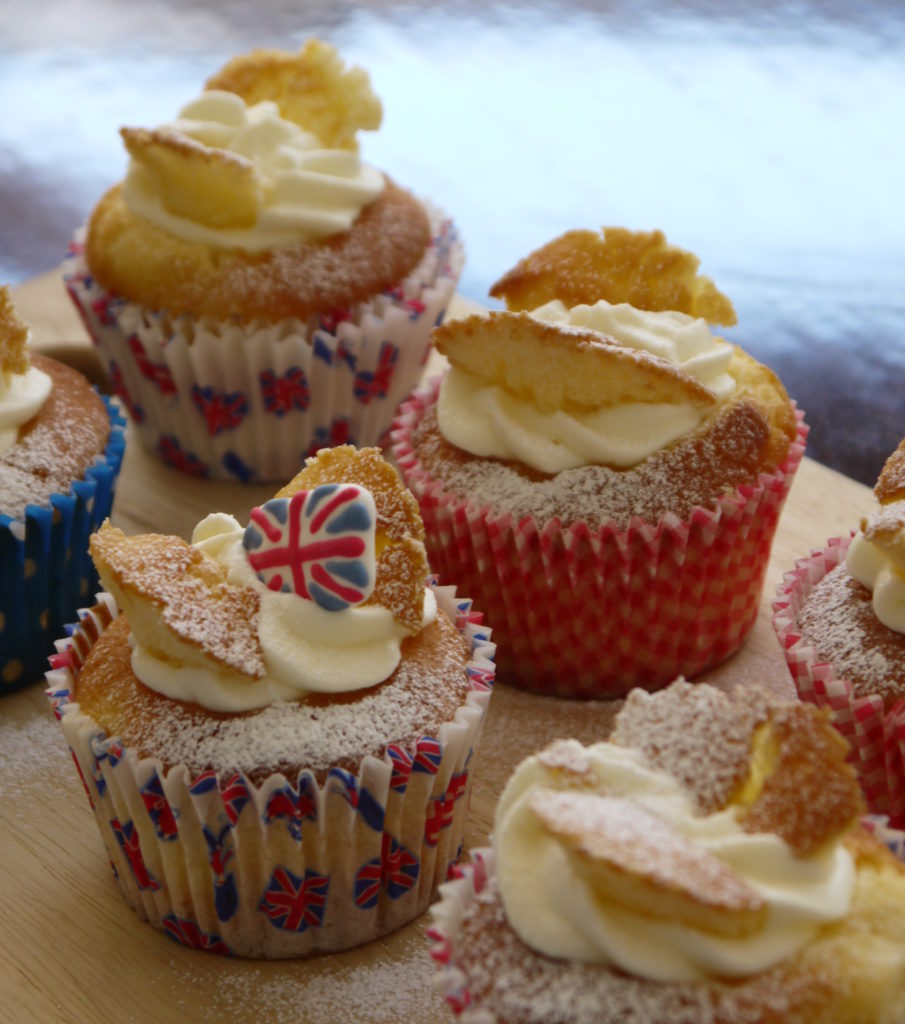
“Each British cake has a history and a story.”
How has your work been received in Japan?
In my classrooms we make British cuisine and sweets using the traditional recipes taught to me by my former neighbors in Reading. All of my customers love the UK. They come to my Osaka classroom from across Japan, from Hokkaido to Kyushu.
Each British cake has a history and a story.
French sweets are famous in Japan so there are many French cooking classrooms, but not many British ones. There are also not many places in Japan for UK fans to enjoy experiencing its food or culture, so I want to change that. Lots of Japanese people love the UK. It is admired, yet seen as a distant country. But, in fact, there are many common points, which I try to show. People have welcomed that.
What’s next?
My life has changed so much since receiving the awards in 2016. I now have some connections with the Scottish and Welsh governments, delivering demonstrations and tastings at events to help promote their cuisine. I have introduced Welsh beer and rarebit in Tokyo and will introduce Scottish sweets—Dundee cake, drop scones and cranachan—at Foodex, in March.
Those things are important, but there is also great power in books. I want to write a new one with more recipes and photos so that more people will come to know about British cuisine. I’m also compiling what I hope will be my life’s work: a dictionary-style book featuring everything you need to know about British cooking.
I will bring a gourmet tour group to England this year to enjoy the best cuisine that the Lake District and the Cotswolds has to offer. Last year I took a group to Wales. People apply from all over Japan on a first come, first served basis because my tours are not like any other. Every day we have morning tea and afternoon tea, with plenty of clotted cream!

Hundreds of flavors & tastes: Sako teaches the best of British pastries and cakes at her Osaka-based cooking school, The British Pudding.
Can we make traditional British sweets in Tokyo?
Yes, we can find all the ingredients we need in Tokyo now. There are still some brands, such as Bird’s custard, that are not sold here, so I buy them in the UK but generally we have everything required.
I’m also compiling what I hope will be my life’s work: a dictionary-style book featuring everything you need to know about British cooking.
When I make British dishes in a Japanese kitchen in front of a Japanese audience, they think, ‘I can make these dishes, too!’, and that is vital. Japanese people find it easier to ask questions to other Japanese people so I get lots of questions about where ingredients are sold and I enjoy sharing advice on retailers and stockists.
What is your dream?
I want to create a new cake and a new word—like banoffee, which is a combination of banana and toffee—that fuses Japan and the UK. And I want that name to last for future generations.
But the most important thing is that I give back to society as best I can, to show my appreciation for the accolades I have received.
Savvy Spotlight is a monthly feature introducing foreign and Japanese women at the frontline of what’s cool, unique and interesting in Japan. If you have anyone in mind you would like us to interview, leave us a comment below with your recommendations!












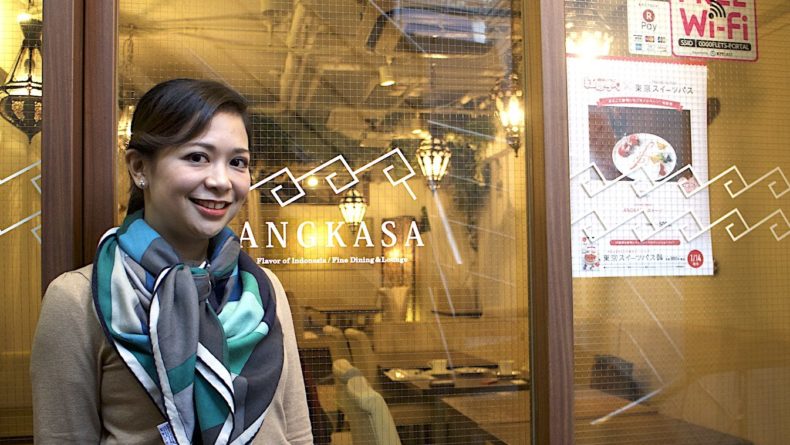
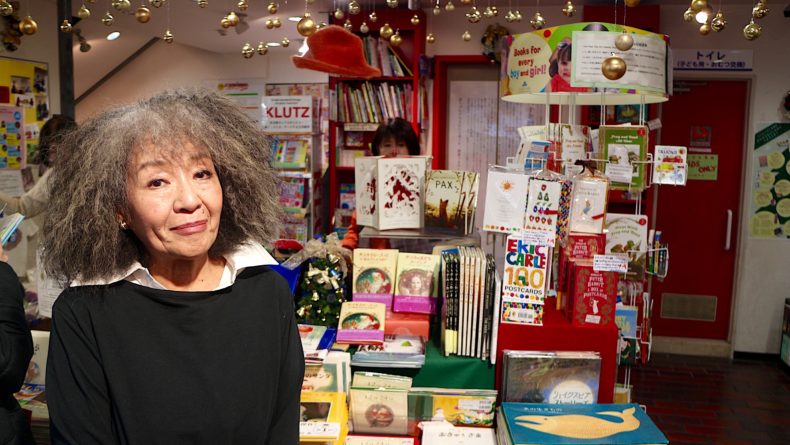
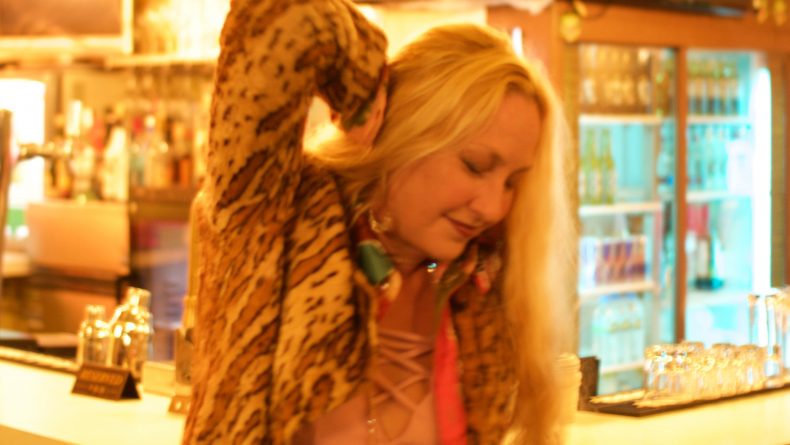
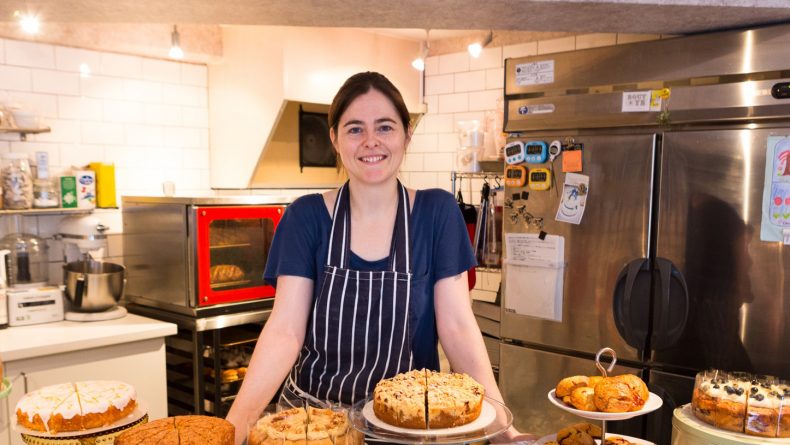
Leave a Reply